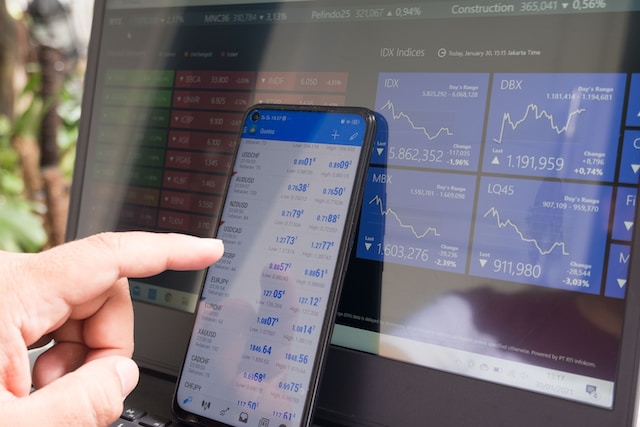
The realm of credit card rewards has evolved into a complex web of political influence, prompting a critical examination of its impact on consumers and the financial system. Behind the allure of lucrative rewards lie intricate connections to political lobbying, shaping not only spending habits but also potentially contributing to financial instability among cardholders. In this exploration, we dissect the politics embedded in credit card rewards, emphasizing the need for financial literacy initiatives to empower consumers in making informed choices.
Unveiling Political Threads in Credit Card Rewards
Credit card rewards, often celebrated as perks for consumers, have deeper roots entwined with political interests. As consumers, we enjoy the benefits of cashback, travel points, and various incentives, often oblivious to the behind-the-scenes maneuvering. The activation of your credit card, seemingly a mundane task, sets off a chain reaction within a system where political lobbying plays a pivotal role.
A Web of Incentives and Spending Habits
The structure of credit card rewards isn’t arbitrary; it’s a strategically designed mechanism to incentivize specific spending behaviors. Every swipe, online purchase, or transaction contributes not only to personal rewards but also to the political agenda driving these programs. It’s essential to recognize how seemingly innocent rewards may guide us towards particular financial decisions, impacting our economic stability in the long run.
- Cashback Conundrum: While cashback rewards appeal to the immediate gratification of saving money, they can also encourage excessive spending. The political motivation behind this structure lies in stimulating economic activity, yet it raises concerns about the financial well-being of individual cardholders.
- Travel Points Dilemma: Travel rewards, a favorite among many, tie into the broader narrative of promoting specific industries. The politics behind such programs may influence consumer behavior, steering them towards sectors favored by lobbying efforts, potentially neglecting other essential aspects of financial well-being.
The Hidden Toll on Financial Stability
As we bask in the allure of credit card rewards, there’s an underlying threat to financial stability that cannot be ignored. The activation of your credit card, a seemingly routine act, may inadvertently contribute to an individual’s financial vulnerability.
- Debt Accumulation: The pursuit of rewards may lead individuals to overlook their spending limits, accumulating debt that could have long-term consequences. The political machinery behind credit card rewards may prioritize economic growth over individual financial health, a disconcerting reality for many consumers.
- Interest Rate Dynamics: Credit card companies, driven by political interests, may adjust interest rates based on intricate economic strategies. Cardholders, unaware of these maneuvers, can find themselves trapped in cycles of debt, highlighting the need for a deeper understanding of the financial landscape.
Advocating for Financial Literacy
In a landscape dominated by political agendas, advocating for financial literacy becomes paramount. The activation of your credit card should be accompanied by a conscious effort to understand the implications of reward structures. Empowering consumers to navigate this intricate web requires a multi-faceted approach.
- Education Initiatives: Governments, financial institutions, and advocacy groups must collaborate to provide accessible and comprehensive financial education. Understanding the political dynamics behind credit card rewards equips individuals with the knowledge to make informed decisions.
- Transparency in Financial Products: Stricter regulations and increased transparency in financial products can mitigate the impact of political lobbying on credit card rewards. Clear and concise information empowers consumers to choose products aligned with their financial goals.
- Community Engagement: Creating communities that share experiences and insights can enhance financial literacy. Platforms, where individuals can discuss the political aspects of credit card rewards, foster a collective understanding, enabling consumers to navigate the system more effectively.
Navigating the Credit Card Rewards Landscape
In a world where the activation of your credit card can have far-reaching implications, consumers must approach financial decisions with a discerning eye. The symbiotic relationship between political interests and credit card rewards demands a proactive stance from individuals.
- Conscious Spending: Understand the impact of your spending on both personal finances and the broader economy. Opt for purchases aligned with your needs rather than succumbing to the allure of rewards, thereby disrupting the political influence on your financial decisions.
- Regular Financial Check-ins: Periodically review your financial standing and credit card usage. This self-awareness can help you identify any negative patterns influenced by political agendas, allowing you to course-correct before significant consequences arise.
- Explore Alternative Financial Products: Consider alternative financial products that align with your values and financial goals. Credit unions and community banks, often less entangled in political lobbying, may offer a more transparent and consumer-friendly environment.
READ ALSO: Navigating Economic Uncertainty: How Politics Impact Property Investment
Conclusion
As we unravel the intricate politics behind credit card rewards, it becomes evident that the activation of your credit card is not a mere transaction but a participatory act in a broader political landscape. By advocating for financial literacy and fostering a deeper understanding of these dynamics, consumers can reclaim control over their financial destinies. Let the activation of your credit card be a conscious step towards informed decision-making, steering clear of the hidden pitfalls orchestrated by political interests.



 everal legislators in Congress, coming from both political parties, are showing bipartisan support for new tax cut deals despite the country’s current record high national debt. Although the proposed legislation aims to help cash-strapped Americans and businesses, the bill is headed toward tough negotiations in the 2024 sessions.
everal legislators in Congress, coming from both political parties, are showing bipartisan support for new tax cut deals despite the country’s current record high national debt. Although the proposed legislation aims to help cash-strapped Americans and businesses, the bill is headed toward tough negotiations in the 2024 sessions. Republican lawmakers are pushing for the revival of three expired or phased out business tax credits the party introduced via a 2017 GOP-sponsored law. Yet sources say that negotiations for their
Republican lawmakers are pushing for the revival of three expired or phased out business tax credits the party introduced via a 2017 GOP-sponsored law. Yet sources say that negotiations for their 
